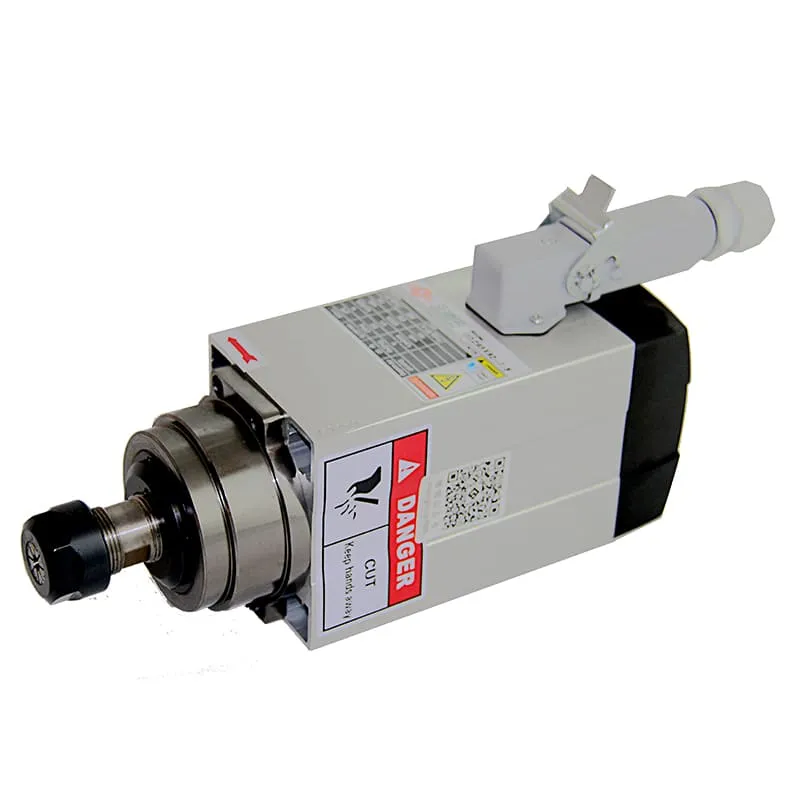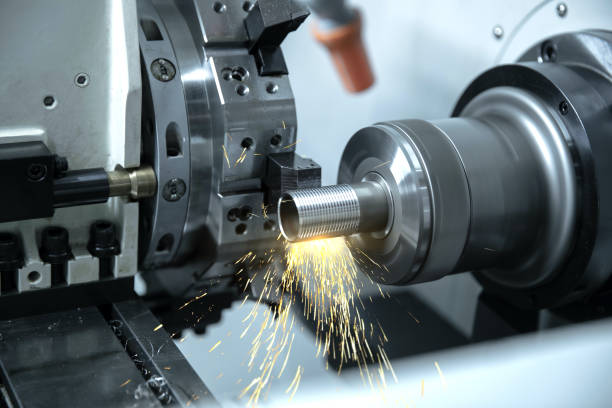A CNC lathe is a highly versatile and precision machine tool that plays a critical role in the manufacturing industry. Whether you are a hobbyist, a small business owner, or part of a large-scale manufacturing company, understanding the cost involved in acquiring a CNC lathe is essential for making informed investment decisions. In this article, we will explore the various factors that influence the price of CNC lathes, the different types available, and how much you can expect to spend on one depending on your specific requirements.
Understanding CNC Lathes
A CNC lathe is a computer-controlled machine used primarily for turning operations—that is, shaping materials such as metal, wood, or plastic by rotating the workpiece against a cutting tool. These machines are ideal for producing symmetrical objects like shafts, rings, and cylinders.
Key Components of a CNC Lathe
- Spindle: Holds and rotates the workpiece.
- Tool Turret: Houses various cutting tools that interact with the workpiece.
- Control Panel: Where the operator inputs commands to control the machine’s actions.
- Automatic Tool Changer (ATC): Allows for efficient switching between cutting tools without manual intervention.
CNC lathes are designed to achieve high precision and efficiency, making them indispensable in sectors like automotive, aerospace, and medical devices.

To learn more about different spindle options for CNC lathes, you can explore CNC milling spindle products.
Factors Affecting CNC Lathe Cost
1. Machine Size and Specifications
The size and specifications of a CNC lathe play a major role in determining its cost. Larger lathes capable of handling bigger workpieces with higher torque spindles are typically more expensive.
- Mini CNC Lathes: Smaller machines designed for light tasks and prototyping. Typically cost between $5,000 to $15,000.
- Mid-Range CNC Lathes: Suitable for small and medium enterprises. Costs range from $15,000 to $50,000 depending on functionality.
- Heavy-Duty CNC Lathes: Built for mass production and large workpieces. Prices start at $60,000 and can go beyond $100,000.
2. Automation Features
The level of automation also affects the price. Features like automatic tool changers (ATC), live tooling (allowing cutting tools to rotate), and robotic part handlers contribute significantly to the overall cost.
- Basic CNC Lathes with manual tool changes are less expensive.
- Advanced CNC Lathes with full automation and robotic handling systems can cost upwards of $200,000.
For high-level automation solutions, you can explore products like Automatic Tool Changers.
3. Spindle Power and Speed
The spindle motor power and speed are also crucial pricing determinants. Higher power is needed for cutting tougher materials like steel or for heavy-duty machining.
- Entry-Level Spindles: Lathes equipped with spindles of 2-5 KW power can handle most general-purpose tasks and are available in the $15,000-$25,000 range.
- High-Powered Spindles: Machines with spindles greater than 10 KW that can achieve high RPMs for specialized tasks cost significantly more.
Explore powerful spindles for CNC machines like the 3.2KW ER20 Water-Cooled Spindle for an idea of pricing.
4. Precision and Tolerance
Higher precision CNC lathes with greater tolerances and accuracy cost more. Machines used in aerospace and medical device manufacturing, where tight tolerances are a must, are among the most expensive.
- Standard Precision Lathes: Offer tolerances of around 0.01mm, priced in the range of $10,000 to $30,000.
- High Precision Lathes: Capable of tolerances as low as 0.001mm, often used in high-precision industries, priced upwards of $50,000.
Types of CNC Lathes and Their Costs
1. 2-Axis CNC Lathes
The most basic type, 2-axis CNC lathes control movement in the X and Z axes, making them ideal for cylindrical components.
- Price Range: $10,000 to $50,000.
- Ideal For: Simple turning tasks, shafts, and bushings.
2. Multi-Axis CNC Lathes
Multi-axis lathes include more than two axes, often 4 or 5 axes, which allow for more complex operations, including milling and drilling in addition to turning.
- Price Range: $60,000 to $150,000.
- Ideal For: Complex geometries and parts that require multiple machining operations in one setup.
3. Swiss-Type CNC Lathes
Swiss CNC lathes are highly specialized machines used for small, precise parts like those in the medical and watchmaking industries.
- Price Range: $100,000 to $300,000.
- Ideal For: High-precision components, small diameters, and high production rates.
4. Vertical CNC Lathes
Instead of the horizontal layout, vertical CNC lathes have a workpiece mounted vertically, which is ideal for heavy and large parts.
- Price Range: Starting from $70,000.
- Ideal For: Large-diameter parts that are heavy and difficult to mount horizontally.
Additional Costs to Consider
1. Software and Training
Purchasing a CNC lathe is just one part of the investment. You’ll need CAD/CAM software for design and programming, which can cost between $2,000 to $5,000.
- Training: Training operators can also add to the initial costs. Training courses vary between $500 to $3,000 per person depending on the depth of training required.
2. Maintenance and Consumables
Regular maintenance is crucial to ensure that a CNC lathe operates smoothly over the years. Budgeting for coolant, cutting tools, and replacement parts is important as these are recurring costs.
- Cutting Tools: The cost of cutting tools varies significantly, with prices ranging from $20 for standard tools to $500 for specialized, high-performance tools.
- Spare Parts: Consider the cost of replacement parts such as spindle bearings, which can cost $200 to $800 depending on the spindle type.
For detailed spindle pricing, visit Spindle Motorshop.
Tips for Choosing the Right CNC Lathe for Your Needs
1. Understand Your Production Needs
Before purchasing a CNC lathe, it’s important to understand your production requirements. Are you producing high volumes of parts, or is flexibility more important? Smaller lathes are well-suited for prototyping, while larger machines are intended for high-volume production.
2. Consider Future Expansion
If you anticipate needing greater capacity in the future, consider a lathe with modular expansion capabilities. A CNC lathe that allows you to add additional tools, spindles, or automation at a later date can save significant costs down the line.
3. Assess Material Compatibility
Not all CNC lathes are built for every material type. Make sure the spindle power and tooling options are appropriate for the material you plan to work with. Machines with higher horsepower are often needed for materials like stainless steel or titanium.
4. Warranty and Support
Always consider the warranty period and the level of support available from the manufacturer. CNC machines are complex, and prompt technical support can be critical to avoiding costly downtimes.
FAQs About CNC Lathes
1. How much does an entry-level CNC lathe cost?
An entry-level CNC lathe typically costs between $5,000 and $15,000, depending on features and size.
2. What factors should be considered when choosing a CNC lathe?
Key factors include the type of material you’ll be cutting, the required precision, spindle power, machine size, and additional automation features like an automatic tool changer. It’s also crucial to consider your production volume and any future expansion needs.
3. How much does a professional CNC lathe cost?
A professional-grade CNC lathe can range from $50,000 to $150,000 or more, depending on the level of precision, automation, and spindle power.
4. Is maintenance for CNC lathes expensive?
Maintenance costs for CNC lathes can vary but generally include expenses for cutting tools, coolant, and periodic replacement of parts like spindle bearings. Annual maintenance costs may range from $1,000 to $5,000 depending on usage intensity.
5. What is the benefit of a multi-axis CNC lathe?
Multi-axis CNC lathes can perform complex operations in a single setup, reducing production time and improving accuracy for parts with intricate geometries.
6. Are CNC lathes suitable for beginners?
Yes, entry-level CNC lathes are suitable for beginners and are often used in small workshops and for prototyping. Training is recommended to ensure safe and efficient operation.

